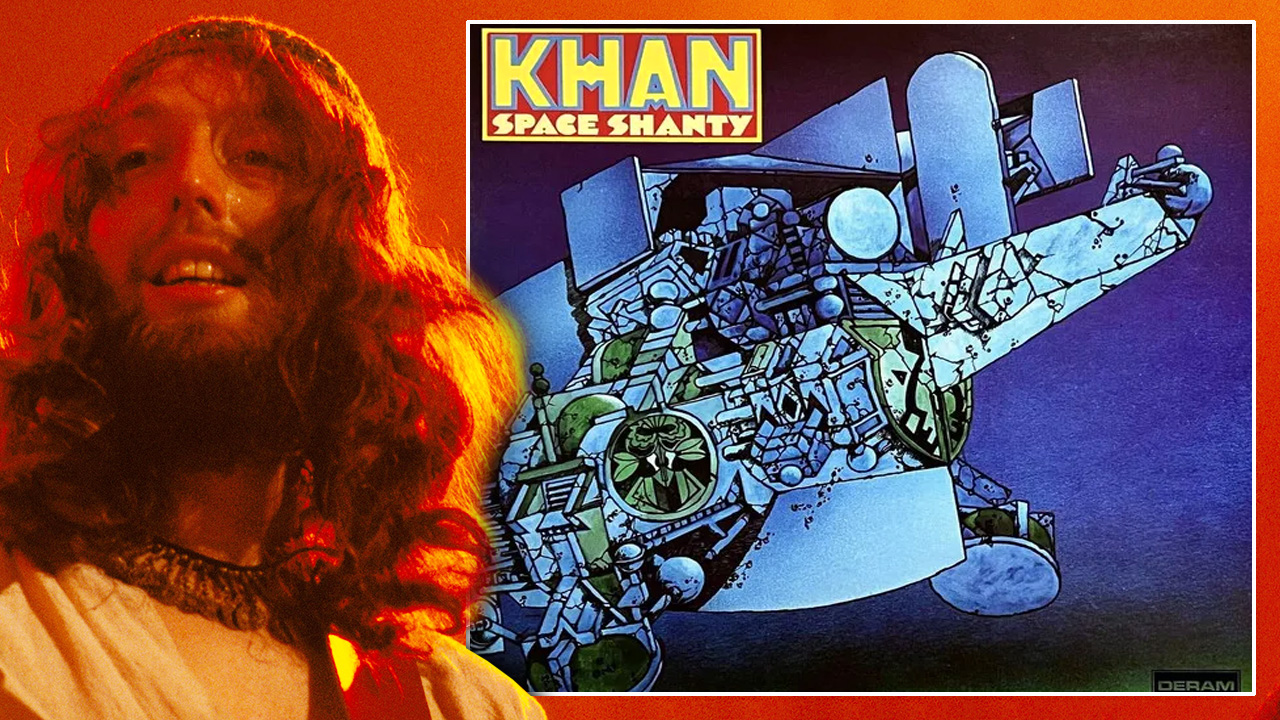“I’ve never seen a penny… but I’m proud of what we did musically”: Steve Hillage’s mixed feelings on his only Khan album, and how the project lived on after he’d ended it
He’s proud Space Shanty has found an audience over 52 years – but bemused at its collectible status

Steve Hillage’s music career began in earnest with 1972’s Space Shanty, recorded with Canterbury scene colleagues under the name Khan. It was full of promise; and a second album was coming together when he decided to shut it down and join Gong instead. In 2011 he told Prog about his mixed feelings about the record’s legacy.
Steve Hillage is a little bitter about the way he’s been financially treated on the debut, and sole album, by Khan. “I’ve never seen a penny,” he declares. “I think I’ve been ripped off over the years by various people. So I do have a slightly negative feeling in one respect towards the album.
“But there again, I’m proud of what we did musically. And if it’s become something of a cult classic now, then I’m glad.”
For Hillage, Khan was effectively a solo project. “I was at Canterbury University and got to know the Caravan guys. Eventually their management took me on and got me a record deal.” He put together a four-piece with himself on guitar/vocals, Nick Greenwood on bass/vocals, Dave Stewart on keyboards and Eric Peachy on drums.
The band toured a lot during their early days, playing the music that would eventually make up the Space Shanty album. “I wrote virtually everything at the time, because this was my project and I was very precious about it all,” he says. “By the time we went into the studio to record, we all knew the material so well it just flowed easily.”
It’s a very English album… it was the start of what I’d later to musically
Hillage recalls that Khan didn’t spend too long recording the Deram-released album, with the style very much in the vein of the Canterbury scene at the time. “We had the recording time required to do it justice, and that was important. When you listen to it, it’s a very English album, and all the compositional elements that I would later develop are in there for everyone to hear.
“To me it was the start of what I’d later do musically,” he continues. “It’s a decent record, and I’m pleased so many people now regard it highly. But it bemuses me that people think Space Shanty is so collectible.”
Sign up below to get the latest from Prog, plus exclusive special offers, direct to your inbox!
Sadly, it was to be the only album from Khan. While a second release was planned, Hillage had already decided to split the band. “I just didn’t want all the pressure of being the only one with a record deal,” he says.
“When Dave – with whom I’d been at school – quit, I ended Khan and joined Gong. But a lot of the songs on my Fish Rising solo album were written for the second Khan album.”
Malcolm Dome had an illustrious and celebrated career which stretched back to working for Record Mirror magazine in the late 70s and Metal Fury in the early 80s before joining Kerrang! at its launch in 1981. His first book, Encyclopedia Metallica, published in 1981, may have been the inspiration for the name of a certain band formed that same year. Dome is also credited with inventing the term "thrash metal" while writing about the Anthrax song Metal Thrashing Mad in 1984. With the launch of Classic Rock magazine in 1998 he became involved with that title, sister magazine Metal Hammer, and was a contributor to Prog magazine since its inception in 2009. He died in 2021.



